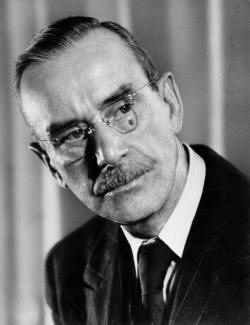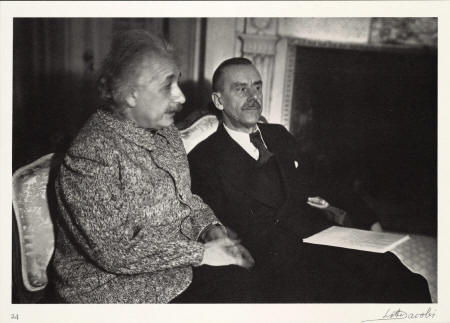

Queer Places:
Technische Universität München, Arcisstraße 21, 80333 München, Germania
Princeton University (Ivy League), 110 West College, Princeton, NJ 08544
65 Stockton St, Princeton, NJ 08540
1550 San Remo Drive, Pacific Palisades, CA 90272, USA
 Paul Thomas Mann (6 June 1875 – 12 August 1955) was a German novelist,
short story writer, social critic, philanthropist, essayist, and the 1929
Nobel Prize in Literature laureate. His highly symbolic and ironic epic novels
and novellas are noted for their insight into the psychology of the artist and
the intellectual. His analysis and critique of the European and German soul
used modernized German and Biblical stories, as well as the ideas of Goethe,
Nietzsche and Schopenhauer.
Paul Thomas Mann (6 June 1875 – 12 August 1955) was a German novelist,
short story writer, social critic, philanthropist, essayist, and the 1929
Nobel Prize in Literature laureate. His highly symbolic and ironic epic novels
and novellas are noted for their insight into the psychology of the artist and
the intellectual. His analysis and critique of the European and German soul
used modernized German and Biblical stories, as well as the ideas of Goethe,
Nietzsche and Schopenhauer.
Mann was a member of the Hanseatic Mann family and portrayed his family and class in his first novel, Buddenbrooks. His older brother was the radical writer Heinrich Mann and three of his six children, Erika Mann, Klaus Mann and Golo Mann, also became important German writers. When Adolf Hitler came to power in 1933, Mann fled to Switzerland. When World War II broke out in 1939, he moved to the United States, returning to Switzerland in 1952. Thomas Mann is one of the best-known exponents of the so-called Exilliteratur, literature written in German by those who opposed or fled the Hitler regime.
Mann's work influenced many future authors, including Heinrich Böll, Joseph Heller, Yukio Mishima, and Orhan Pamuk.[1][2]
Mann's diaries reveal his struggles with his homosexuality, which found reflection in his works, most prominently through the obsession of the elderly Aschenbach for the 14-year-old Polish boy Tadzio in the novella Death in Venice (Der Tod in Venedig, 1912).[19]

Albert Einstein and Thomas Mann by Lotte Jacobi

by George
Platt Lynes
.jpg)
Princeton University, NJ
My published books: